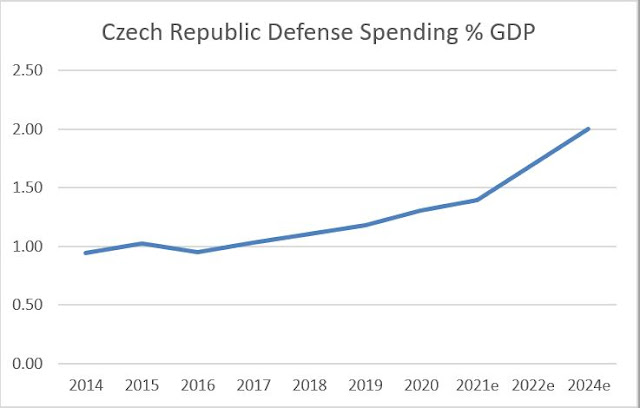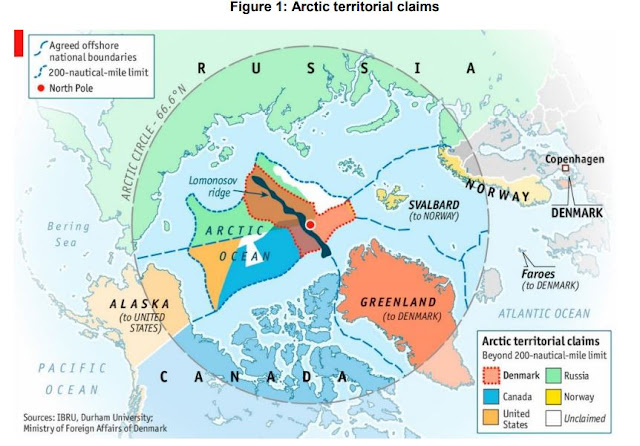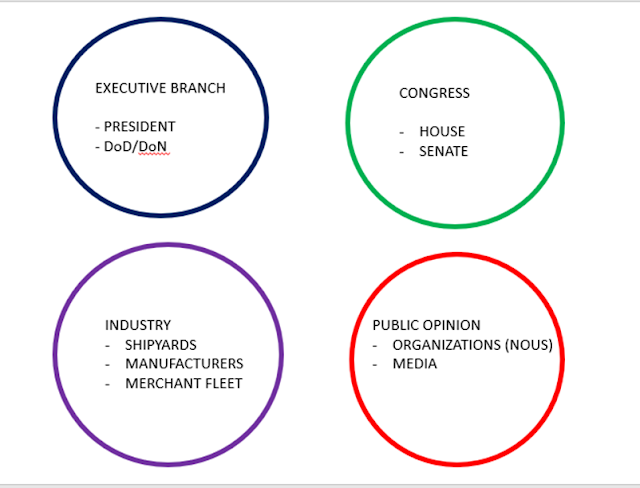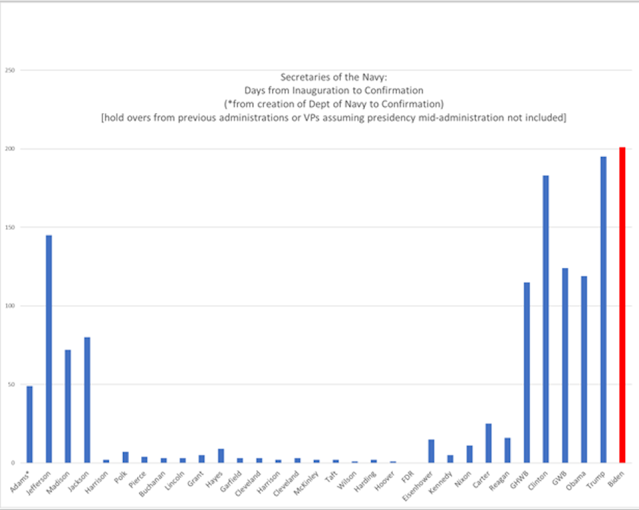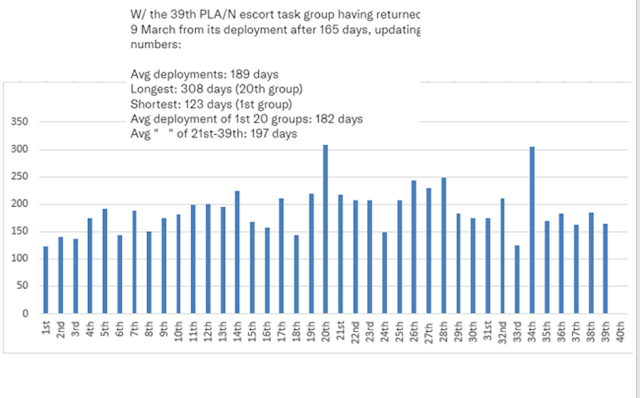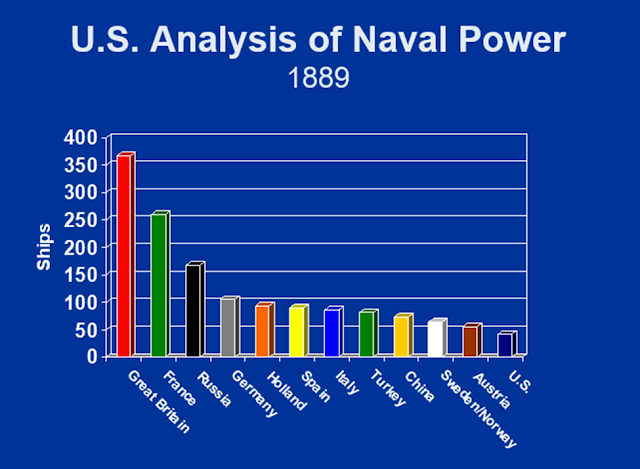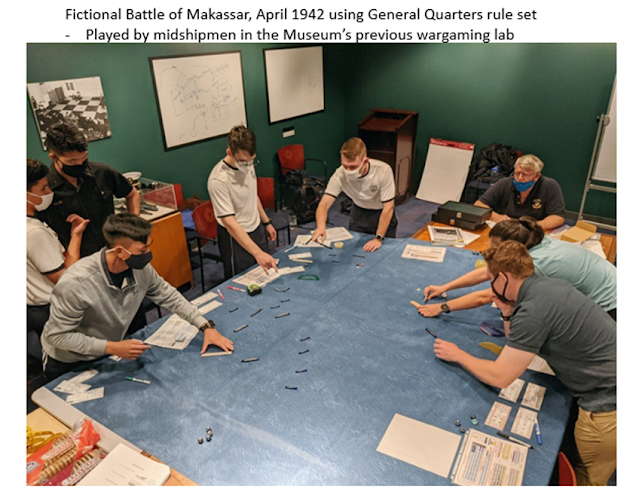We started doing the "Long Game" series about the rise of the People's Republic of China to challenge American's place in the world. At the end of that first post in the series in July of 2004, I wrote;
Say what you want about the Chinese, they are very focused on their long term strategic needs. They will continue to study the way we do business at sea, and they will make sure they are ready when the call comes. Are we?
A lot of folks hear rustling in the woods behind us.
There were a lot of us, but few were listening. 18.4 years later, they are now.
That is part of the reason it has been since May of this year since I did a Long Game post. I've written a fair bit about the PRC since then, but did not use the "Long Game" tag. Why? Simple, we are here. Over 18 years is a "long time." All but the most compromised see the threat from the PRC and the game is afoot.
It is military, economic, and academic - and it is in our face.
I still think the tag is helpful in that while the PRC is now ready to call our bluff west of Wake, they are the nation with thousands of years of history, and they have a plan ... we just need to keep an open eye and mind to see it.
If you want to get the view from the official organs of the US government towards the PRC, a good place to look would be the recently published review of military and security development in the PRC by the USA's Department of Defense.
There is one paragraph early on that I think is the most important;
Sensitive, dual-use, or military-grade equipment that the PRC have attempted to acquire include radiation hardened integrated circuits, monolithic microwave integrated circuits, accelerometers, gyroscopes, naval and marine technologies, syntactic foam trade secrets, space communications, military communication jamming equipment, dynamic random access memory, aviation technologies, and antisubmarine warfare (ASW) capabilities.
How will they acquire all this dual use technology? If you are thinking it is Spy-vs-Spy old school espionage, you are only looking at a very small portion of what is going on.
You need to look at the very sober fact that they are getting that technology the most efficient way - they are convincing us to give it to them. It starts at our universities and pipelines right in to industry.
First of all, let's look at some charts from Statista.
Even with the COVID effect, the numbers are staggering. Here's the number of college and university students from China in the United States from academic year 2010/11 to 2020/21 :
Note the decline to the USA is not the same as the decline globally. Here's the number of students from China going abroad for study from 2010 to 2020;
The numbers here are hard to come by and I would consider the above to be on the high side. SCMP puts the number at 290,086. A 2020 study from Georgetown University's Walsh School of Foreign Service have about half those numbers, but the commentary to the study is sound;
The results speak to ongoing policy conversations about the risks and benefits of Chinese students enrolled in science, technology, engineering, and mathematics (STEM) programs at U.S. universities. These conversations have been hampered by a lack of granular data on the number of enrolled Chinese students by field and degree level. For example, it is currently impossible to calculate the financial impact of Chinese students on the U.S. university system because we do not know how many Chinese graduate students are in master’s programs (and thus likely to pay full tuition) versus Ph.D. programs (for which they often receive university or federal funding). This paper seeks to provide such data and to identify remaining data gaps that should be filled.
Because there is no single database of domestic and international students in the United States that includes all the relevant information, analysts have had to produce estimates using several different data sources. These sources often count slightly different things over possibly different periods, complicating the analysis and increasing the risk of inadvertent errors. Our findings differ from widely-cited government estimates. Whereas those estimates suggested that 25 percent of U.S. STEM graduate students and 15 percent of STEM undergraduates are Chinese, we conclude with high confidence that the numbers are 16 percent and 2 percent, respectively.
That's right kiddies; one of the nation's top universities that happens to be in our nation's capital with incredible connections to our federal government finds, "..no single database of ...international students in the United States..."
In case you were wondering, the number of Americans studying in China in 2020 was 2,481. I can't find out how many are completing a full program of study or just doing a semester ... or what their majors are ... but just look at that delta.
From that study, it is clear that they are not in the USA to get Gender Studies degrees.
Look at how close the numbers of undergrads and graduate students are. Note that they're all STEM.
You cannot classify math. You cannot classify dual-use research. You cannot remove knowledge gained. Just look at those numbers. Look at those fields. Look up-post what areas the PRC wants to advance in.
We are making our #1 competitor better, and taking away opportunities for the children of American taxpayers who especially with land grant universities, paid for these universities to exist to serve them.
I don't blame the PRC's citizens for wanting to come here to study, for both personal and professional reasons. However, they never really leave their dystopian nation behind;
On the bucolic campus of Purdue University in Indiana, deep in America’s heartland and 7,000 miles from his home in China, Zhihao Kong thought he could finally express himself.
In a rush of adrenaline last year, the graduate student posted an open letter on a dissident website praising the heroism of the students killed in the Tiananmen Square massacre in 1989.
The blowback, he said, was fast and frightening. His parents called from China, crying. Officers of the Ministry of State Security, the feared civilian spy agency, had warned them about his activism in the United States.
“They told us to make you stop or we are all in trouble,” his parents said.
Then other Chinese students at Purdue began hounding him, calling him a CIA agent and threatening to report him to the embassy and the MSS.
Kong, who goes by the nickname Moody, had already accepted an invitation from an international group of dissidents to speak at a coming online commemoration of the Tiananmen massacre anniversary. Uncertain if he should go through with it, he joined in rehearsals for the event on Zoom.
Within days, MSS officers were at his family’s door again. His parents implored him: No public speaking. No rallies.
That powerful hook back home isn't just used to keep people under control - but to get them to do further things for the PRC.
In August 2015, an electrical engineering student in Chicago sent an email to a Chinese national titled “Midterm test questions.”
More than two years later, the email would turn up in an FBI probe in the Southern District of Ohio involving a suspected Chinese intelligence officer who authorities believed was trying to acquire technical information from a defense contractor.
Investigators took note.
They identified the email’s writer as Ji Chaoqun, a Chinese student who would go on to enlist in the US Army Reserve. His email, they say, had nothing to do with exams.
Instead, at the direction of a high-level Chinese intelligence official, Ji allegedly attached background reports on eight US-based individuals who Beijing could target for potential recruitment as spies, according to a federal criminal complaint.
The eight – naturalized US citizens originally from Taiwan or China – had worked in science and technology. Seven had worked for or recently retired from US defense contractors. The complaint says all of them were perceived as rich targets for a new form of espionage that China has been aggressively pursuing to win a silent war against the US for information and global influence.
It would be one thing if we took an active roll here in the US and other Western nations (like The Netherlands in the link below), but we allow not just PRC police and intelligence services to run free, we allow other students (many the same people) to act as enforcers.
26-year old UG student Meng avoids interacting with Chinese government supporters altogether, if she can. ‘These Pinkies are way too sensitive’, she says, using the nickname for young Chinese Communist Party supporters. ‘They are always very aggressive and feel they represent the side of justice.’
I’m always careful about choosing people to talk to
She is also careful when talking to people she doesn’t know well. And when she participated in a protest in Amsterdam this summer, remembering the 1989 massacre at Tiananmen Square that cost hundreds of lives and left thousands wounded when the Chinese government opened fire on protesters, she wore a mask and disguised herself in cheap clothes. ‘There were Chinese people there who kept taking pictures of us with their mobile phones’, she remembers. ‘When the protest was over, my companion and I walked to a place where no one was around. We changed our clothes and threw the outfit we had on in a trash bin.’
The FBI is, in theory, on the hunt - but read this from NPR and tell me if you think they are getting all the help they need from universities.
"The Chinese intelligence services strategically use every tool at their disposal — including state-owned businesses, students, researchers and ostensibly private companies — to systematically steal information and intellectual property," FBI Director Christopher Wray said at the Council on Foreign Relations in April.
Former FBI agents say the bureau's recent visits to universities are merely an extension of long-running efforts to collaborate with the private sector and academia on national security issues.
Speaking of dual use, not only are many of the finite number of PhD programs going to foreign nationals - and as this is a zero sum game - and not US citizens; so are the jobs.
Chinese and Indian students make up nearly half, and “most stay long after graduation”. “In February 2017, approximately 90% of Chinese nationals and 87% of Indian nationals who completed STEM PhD programmes in the US between 2000 and 2015 were still living in the country, compared to 66% of graduates from other countries,” the report states.
"Wait..." you say, "How can they help the PRC's military if they are working for American companies and universities?"
Well, its complicated - and made more so by the numbers being so large. It is hard for the FBI to keep track of what the threats are when the pool of candidates are so large and the connections so varied. Heck, the problem people don't even have to be from China;
The China Initiative’s most high-profile case has been that of Charles Lieber, the chair of the chemistry department at Harvard and a perennial Nobel Prize candidate, as well as the recipient of more than fifteen million dollars of federal funding, including from the Department of Defense. From 2012 to 2017, Lieber participated in China’s Thousand Talents, the most vaunted talent program; his contract paid him fifty thousand dollars per month, along with generous startup fees to establish a lab in Wuhan. He had, however, neglected to inform Harvard of his double-timing in China, and, when approached by federal investigators, he continued to conceal the arrangement—and the sacks of cash he had smuggled through customs. In December, he was convicted of lying to federal authorities, falsifying tax returns, and failing to report foreign earnings. Some felt that this was just another anti-Chinese expedition; a D.O.D. official testified that the investigation was prompted by the sheer number of Chinese students working in Lieber’s lab. But John Krige, the historian, has noted that Lieber’s contract stipulated that he work on the development of batteries for high-performance electric vehicles, an area of industrial competition. “The academic research community must ask itself if it is morally or politically acceptable to engage in international scientific collaboration with China in fields that can seriously harm the domestic economy,” he wrote.
This problem of our own creation is worthy of a few books and won't be solved here - but policy makers have to address:
- Too many of the finite numbers of US STEM graduate program seats are being taken up by citizens of the PRC.
- These STEM degrees feed the knowledge base for dual-use technology.
- PRC nationals working in cutting edge technology jobs received by having been given one of those limited positions make them the target for PRC exploitation.
- Even if PRC nationals take nothing material when they go home, they take their education and exposure with them.
- For a quarter century, us government and educational institutions have developed close and unequal relationships from entities controlled by the Chinese Communist Party.
This should be a non-partisan issue - but an American issue.









